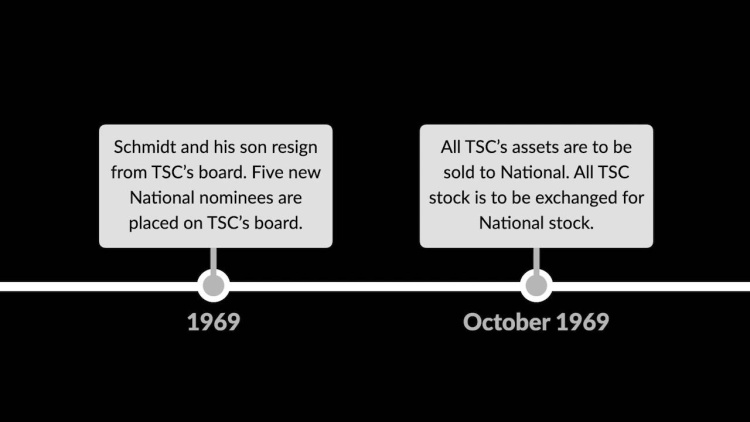TSC Industries, Inc. v. Northway, Inc.
United States Supreme Court
426 U.S. 438 (1976)
- Written by Jamie Milne, JD
Facts
In 1969, National Industries, Inc. (National) (defendant) acquired 34 percent of the voting stock of TSC Industries, Inc. (TSC) (defendant). Several National executives were placed on TSC’s board of directors. Also, National’s president, Stanley Yarmuth, became chairman of TSC’s board, and National’s executive vice president, Charles Simonelli, became chairman of TSC’s executive committee. Later that year, TSC’s board, with the National members abstaining, approved a plan to merge with National. National and TSC issued a joint proxy statement to shareholders to solicit authority to vote the shareholders’ shares in favor of the proposal. The solicitation was successful, and the deal was approved. TSC shareholder Northway, Inc. (plaintiff) sued TSC and National, alleging that the proxy statement was materially misleading and therefore violated § 14 of the Securities Exchange Act of 1934. In support, Northway pointed to, among other things, the fact that although the proxy statement disclosed National’s 34 percent ownership of TSC shares and placement in five of TSC’s 10 director roles, the statement did not disclose Yarmuth’s and Simonelli’s chairman roles. Northway moved for summary judgment. The district court denied the motion, determining that a trial was necessary because the materiality of the omissions was a question of fact. The court of appeals reversed in part, concluding that some omissions were material as a matter of law because a reasonable shareholder might consider the information important. The United States Supreme Court granted certiorari.
Rule of Law
Issue
Holding and Reasoning (Marshall, J.)
What to do next…
Here's why 907,000 law students have relied on our case briefs:
- Written by law professors and practitioners, not other law students. 47,100 briefs, keyed to 996 casebooks. Top-notch customer support.
- The right amount of information, includes the facts, issues, rule of law, holding and reasoning, and any concurrences and dissents.
- Access in your classes, works on your mobile and tablet. Massive library of related video lessons and high quality multiple-choice questions.
- Easy to use, uniform format for every case brief. Written in plain English, not in legalese. Our briefs summarize and simplify; they don’t just repeat the court’s language.






